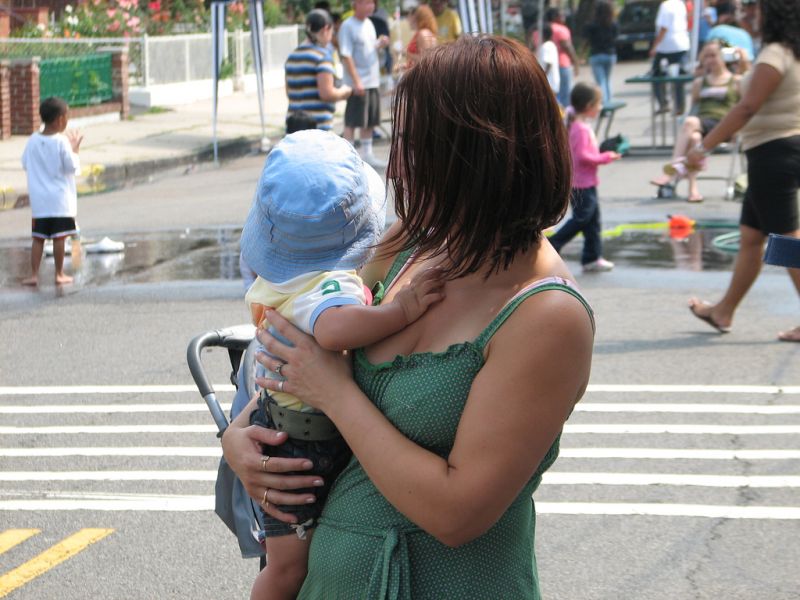
<a href="http://www.flickr.com/photos/whartz/">williamhartz</a> / Flickr
A new study published in Pediatrics has a totally non-world-shattering conclusion: mothers of children under age 3 don’t get as much exercise as non-mothers, they weigh a little bit more, and are more likely to consume sugary beverages. What is surprising is that until now, the exact difference in how much exercise parents get vs. non-parents hasn’t been quantified. (For the record, non-mothers exercise 50 minutes a week more than new moms.)
The title of the study, “Are Parents of Young Children Practicing Healthy Nutrition and Physical Activity Behaviors?”, somehow gave me the idea that the research would somehow blame new moms for not being healthy enough. God knows there’s a plethora of articles and books telling women what to eat and not to eat during pregnancy. But I was pleased to see the study’s authors were on the ball, pointing out that the weight difference between new mothers and non-mothers (about 5 lbs for a 5’5″ tall woman) is likely due to a number of factors. Among them: moms may eat high-calorie children’s food along with their kids, they have some baby weight left, they may be breast feeding, they are likely tired from broken sleep, and if they do have spare time at the end of the day, moms may prefer to sleep or relax rather than go to the gym. There’s also the possibility that mothers are underestimating the amount of “exercise” they get because they are not calculating in time spent chasing after a toddler or other child-related activities.
Please note that I’m using the terms “mother” and “mom” here for a reason: new dads did not experience weight gain or nutritional differences from non-fathers, most likely because (as the study’s authors point out) mothers still tend to be the primary caretakers for children, especially babies and toddlers. I’d love to see the authors do another study to see if the weight gain, sugary beverage consumption, and exercise depletion seen in new mothers continue as their children get older. I’d also be interested to see if stay-at-home dads had the same health effects as new moms.
Until then, the study’s practical suggestions are for health care providers to talk with parents about how to stay active and fit with a new baby. That, and for parents to “engage in healthful weight-related behavior regardless of the demands of parenthood.”






